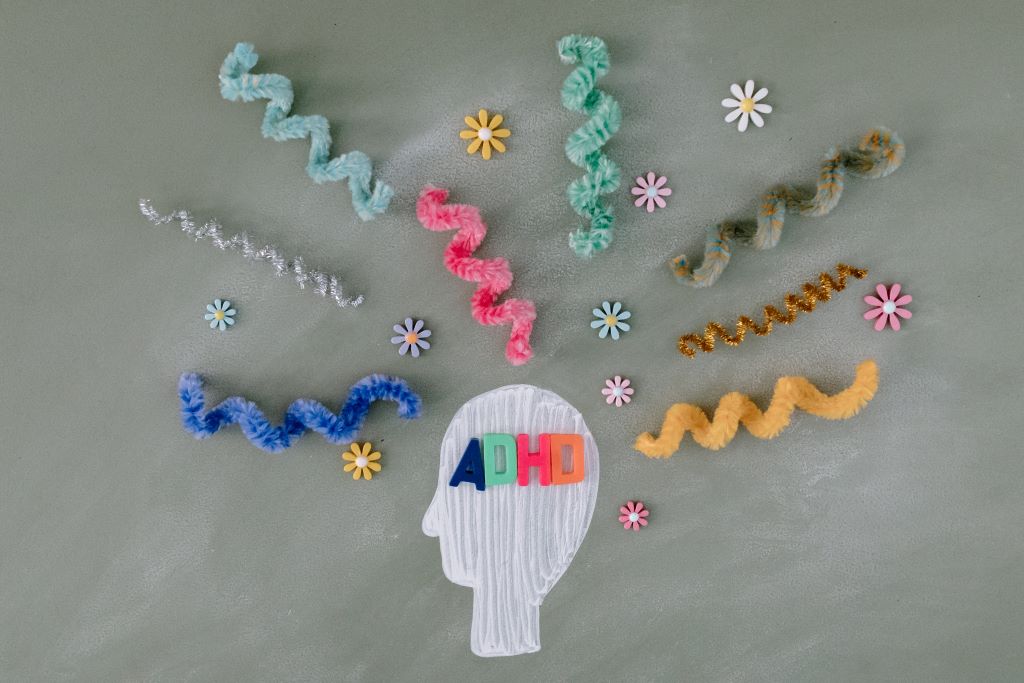
ADHD is short for Attention Deficit Hyperactivity Disorder. In reality, this name can be misleading, as ADHD is not a deficit of attention, but rather an inability to control your focus, meaning that your focus would shift constantly and without your control. Alternatively, you could hyper-fixate on a task, meaning that your focus remains on one task, also without your control, to the point that you could forget to eat or you miss an appointment because you were so focused on this other task. Not being able to control your focus also includes tasks which are considered to be important, such as work tasks, or homework for school. Another myth related to ADHD is the assumption that ADHD only affects children, when, in reality, one does not simply grow out of their ADHD. In fact, research has shown that 6.78% of the adult global population is diagnosed with ADHD, which translates to 366.33 million adults.
So, what are the symptoms of ADHD? Everyone knows the typical fidgety child who can’t sit still in a classroom for five minutes, but can you recognise it in adulthood? In adults, ADHD can look like disorganisation, difficulty staying on the task at hand, poor ability to plan things, excessive activity or restlessness, or lots of thoughts whizzing through your head. It’s important to note that hyperactivity does not mean just physical hyperactivity, but it can also be mental hyperactivity. Because of this, ADHD can sometimes be misdiagnosed as anxiety.
A main symptom of ADHD, which unfortunately is not discussed enough, is executive dysfunction. Executive functioning affects our behaviour, allowing us to select and monitor our behaviour to reach a particular goal. Therefore, executive dysfunction happens when a person cannot remember the steps of a particular task, or even becoming demotivated to carry out a task because of the steps involved – for example, if you think about it, doing laundry has a large number of steps, which can result in someone with ADHD forgetting a load in the washer or dryer. People with ADHD commonly lack the ability to handle frustration, start and finish tasks, recall and follow multi-step directions, stay on track, self-monitor, and balance tasks (like sports and academic demands).
Undiagnosed ADHD can cause a myriad of personal and social problems. Adults with untreated ADHD receive more speeding tickets, may have more problems with partners, mainly because people who have ADHD are more likely to forget things, interrupt their partner, or even zone-out while their partner is speaking. People with ADHD may struggle more with getting to work on time due to something called time blindness, and struggle more with receiving multi-step tasks (thus causing more problems at work). They are also more likely to change jobs frequently as the previous job would become ‘boring’ or uninteresting. In many situations, undiagnosed and untreated ADHD in teenagers and adults results in more experimentation with substances, due to impulsivity.
Is some of this is starting to sound familiar? You might want to consider a diagnosis. A diagnosis can only be provided by a psychiatrist or a clinical or educational psychologist. If you are unsure where to start, reach out to the NGO, ADHD Malta, a very helpful supportive association that can guide you further. A diagnosis is not a death-sentence but something which may enable you to understand yourself and your needs better. Nowadays there’s more support out there for ADHD than there ever was. This includes a community that can help you find ways to make ADHD your superpower, rather than a crutch.
Do you have an experience you’d like to share with us at Wham, either in your name or anonymously? We’d love to hear from you! Contact us or send us an email at [email protected]

Mel McElhatton is a social worker and trainee Gestalt psychotherapist, currently carrying out support sessions with TherapyWorks clinic. Mel is currently the deputy national president of JCI Malta, a youth leadership organisation, where Mel supports young people to feel empowered to be leaders in their lives and within their communities.
For more information on the services offered by TherapyWorks, visit https://www.therapyworks.com.mt/. Emails may be sent on [email protected]





